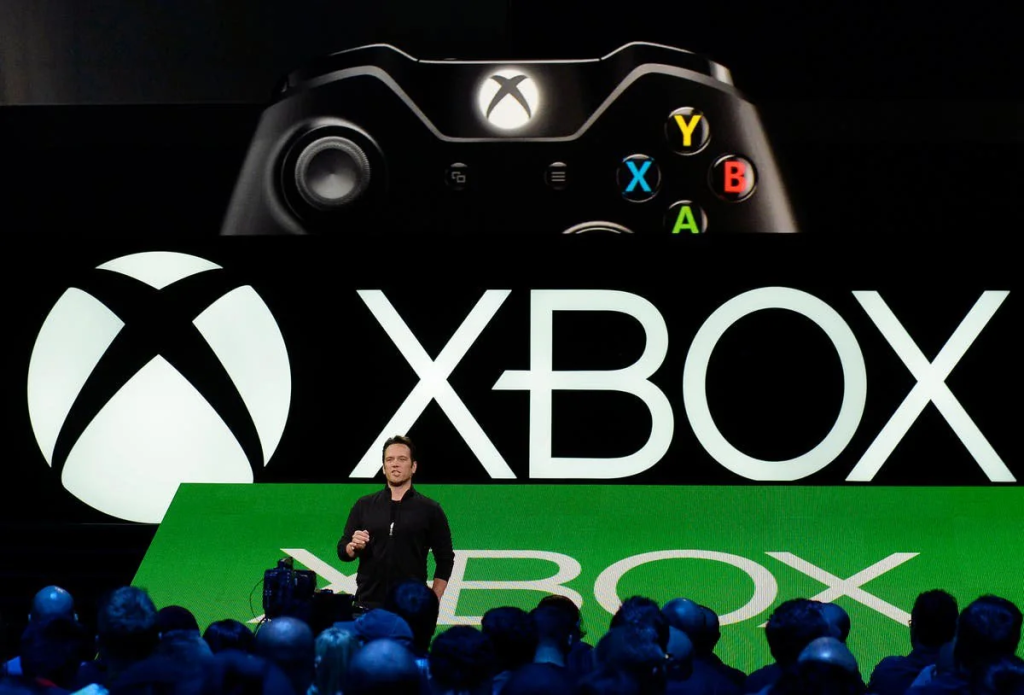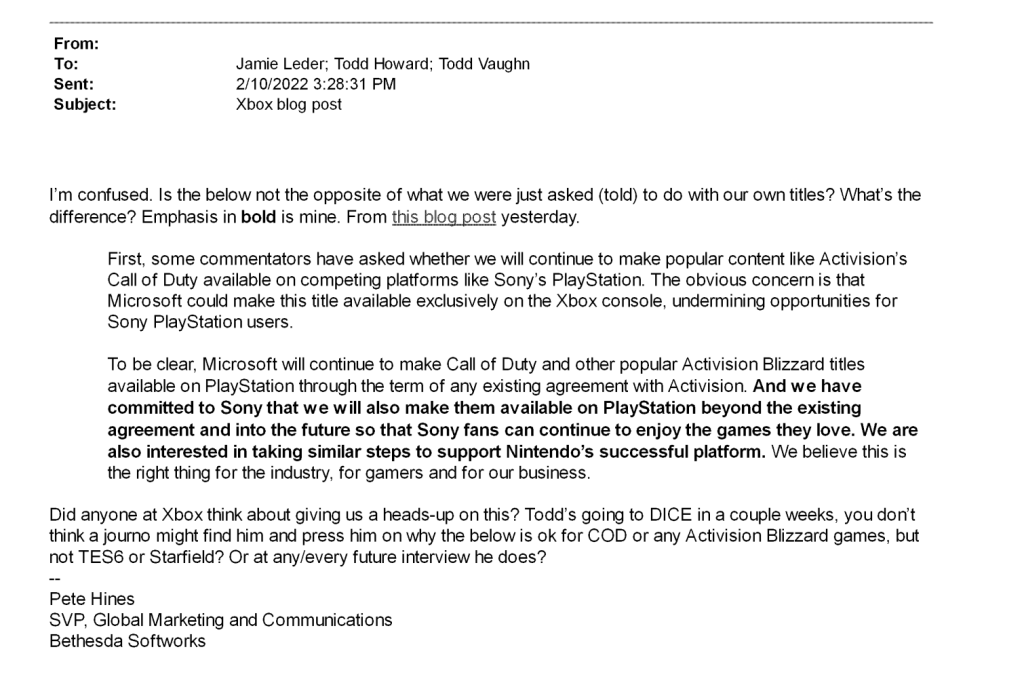2024 has already been a wild year. Most recently, The Verge reported that Microsoft is about to announce that some of its Xbox-exclusive titles are about to hit PlayStation and Switch. This (almost) unheard of move has led to player angst, fears that Microsoft is throwing in the towel on hardware, and that those who picked green over blue this generation wasted their money. It is far too early for this kind of panic.
Let’s take a beat and figure out where we are and where we could be going.
Console warriors are wading back into the trenches to talk about the future of their pointless battle over plastic boxes. But this situation has the potential to offer both positives and negatives.
First, the negative (because I want to land on the positives). I do understand the concern from some players that they’ve made the “wrong” choice about which $500 console to back. As I’ve posted before, it’s important we do look at the broader consumer base. There are many people who save up to purchase one console per generation. With some Xbox-exclusive games potentially coming to PlayStation, one platform will have access to more titles. Seen. Heard.
But if you’re not in that group and you do have the means to purchase multiple consoles, this still may affect you in the long run. There is significant worry that Microsoft may be planning an exit from the console market. I don’t believe this will be the case any time soon, but if it does happen, it will leave Sony controlling the core of the hardware market. Nintendo has proven time and again that they run their own race and are largely above the competition. And, with diminished competition, the market leader is free to set the terms of engagement without contest.
Microsoft isn’t blind to this, and I don’t think they want to hand control over the core console market to Sony.

Think about what competition has gotten us even recently: cross-progression and cross-play, Games with Gold and PS+ Monthly Games, subscription based access (flawed, but great accessibility for cash-strained players), and more. Markets thrive on competition and are weakened in its absence. An end of the Xbox console era is bad for the market.
Now for the positives.
Let’s assume for a second that Microsoft follows PlayStation’s PC playbook for bringing its games to other platforms. As a refresher:
- Not every PlayStation exclusive comes to PC.
- Every game that does make the jump to PC does so more than a year after launch.
- Sony’s PC strategy encourages double dipping.
Microsoft has already shown that Game Pass releases on PC sell excellently on Steam (provided the game is good). So, let’s take the Starfield scenario. Assuming that the reports are accurate and Bethesda Game Studios’ latest does come to PlayStation a year or more later. Who is this harming in the short term?
It’s not hurting Xbox players (especially Game Pass subscribers). You’ll have had plenty of time to enjoy it. It’s not hurting people who purchased it early. You clearly wanted to play it when it came out.
Assuming that the thesis is accurate, Microsoft will bring in additional revenue that will ultimately preserve jobs and allow these games to reach additional players.
If you had asked me more than five years ago if I ever thought that cross-progression and cross-play would become the norm, I would have laughed. Why? Because it was not the way things were done. My friends and I had the Nintendo vs Sega conversation on the playground at recess in the 1980s and 90s more times than I could count. Likewise, we accept console exclusives as the only way things are done, because that’s the way they’ve always been done.

That doesn’t mean this will work or that it’s a good idea. It just means we haven’t really seen the alternative tested.
But I do have some questions that only time will answer.
Will this weaken the trust in the Xbox brand? Based on what we’re seeing online from a vocal group of fans, the diehards may be shaken. But the market is much larger than what Twitter would have you believe.
Will this diminish interest in Xbox hardware purchases and, if so, what is Microsoft’s next move? Microsoft could be looking toward a post-hardware future in which their games are distributed on Xbox-branded and partner devices (Samsung Game Hub already has Xbox Cloud Gaming built in). The company already counts PC gamers among its core customers thanks to Windows, a Steam Machine-style approach might be the natural evolution of living room hardware.
I am curious as to why the first three games identified in the reporting (Hi-Fi Rush, Starfield, and Indiana Jones and the Great Circle) are all Bethesda titles, though. For that we can look to an email that surfaced as part of the FTC hearings that took place around the Microsoft and Activision deal.

In his role as SVP of Global Marketing and Communication, Pete Hines did exactly what someone in his role should do. He sought clarity on mixed messaging that ultimately put his organization at risk in the press and in the court of public opinion. As the head of marketing, Pete’s job was to sell video games to as many people as possible. He was told he had to restrict Bethesda’s audience, while Activision Blizzard wasn’t similarly handcuffed.
Now that he is enjoying his well-deserved retirement, it may be that this email is finally finding purchase within Microsoft. We do not yet know if Microsoft is simply applying the policy it has adopted for Activision Blizzard titles to Bethesda’s portfolio, perhaps as a way to test the waters in a way that will make logical sense to an emotional public that does not understand (or often care to understand) how the industry works on a molecular level.
It could be that the Indiana Jones license and what may be an onerous minimum guarantee in the licensing agreement with Disney have prompted Microsoft to take these steps sooner rather than later. And we may not have any clarity for another week, as Phil Spencer has pushed off the company’s “business update” to sometime during the Academy of Interactive Arts & Sciences annual D.I.C.E. event in Las Vegas.
What I do know is that the internet is reacting, as it often does, to half the story. Sure, this could be terrible, but it might not be. I’m withholding judgment until we understand exactly what Microsoft is planning and how it will take steps to protect its brand and values.
This story isn’t over. It’s just beginning.
